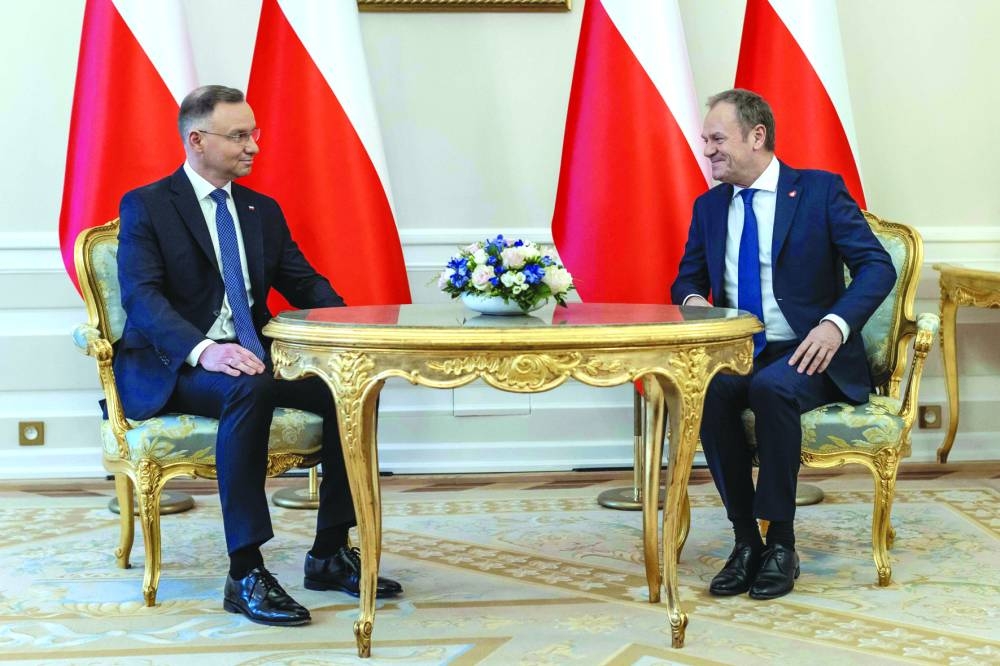A top Polish court moved yesterday to block the dismissal of a senior prosecutor accused of involvement in the politicisation of the country’s legal system, underlining the challenges the government faces delivering reforms needed to get EU funds.
Critics say reforms implemented by the former nationalist Law and Justice (PiS) administration increased political influence over the courts, and billions of euros earmarked for Poland have been frozen by Brussels due to rule-of-law concerns.
Warsaw’s new pro-European government has vowed to roll back the reforms and unblock the cash, but its task has been complicated by the fact that President Andrzej Duda is a PiS ally and that the party’s supporters occupy powerful positions in the courts and regulatory bodies.
The latest battle between the new government and allies of the old administration was opened on Friday when Justice Minister Adam Bodnar, dismissed Dariusz Barski, who as the country’s state prosecutor oversaw all cases and prosecutors.
Yesterday, the Constitutional Tribunal, which critics say became politicised under PiS and whose head Julia Przylebska has been described by the party’s leader Jaroslaw Kaczynski as a “close friend”, moved to block the dismissal.
“The Constitutional Tribunal issued an interim decision in which it ordered the prosecutor general and all public authorities to refrain from any actions that would prevent Dariusz Barski...from performing the function of state prosecutor,” it said.
The president’s office then said it had asked the tribunal to resolve the dispute between Duda and the government over Barski.
Barski, who has not commented publicly since he was dismissed, is due to appear on a television news show later.
Confusion has abounded in Poland’s judicial system since the new government embarked on its drive to undo PiS’s changes to the courts and state media.
The Constitutional Tribunal has created obstacles to the changes and Supreme Court judges appointed under PiS have handed down different rulings on the same issues from judges appointed earlier.
The differences between the new government and the head of state have spiralled into open conflict in a turbulent first few weeks of “cohabitation”.
The president says Bodnar does not have the authority to unilaterally dismiss Barski. The justice ministry argues that Barski’s appointment was invalid, as laws in force at the time of his appointment barred somebody who had retired from taking up the role of state prosecutor.
“The dismissal of the state prosecutor may only take place after consultation between the prime minister and the president...it requires the president’s written consent,” Duda told reporters after meeting Prime Minister Donald Tusk.
“There is no doubt that the law was broken here.”
Tusk said he had offered Bodnar his “full support” in making the prosecutor’s office independent. “I hope that the president will help us in this, not hinder us,” he said.
PiS said its reforms were intended to sweep away the distortions and inefficiencies left from communist rule.
Bodnar told reporters yesterday that he wanted the new state prosecutor to be someone who “enjoys absolute authority, respect from all legal circles and will guarantee the proper functioning of the prosecutor’s office in the future”.

Polish President Andrzej Duda (left) and Polish Prime Minister Donald Tusk have taken seat for talks during their meeting at the Presidential Palace in Warsaw yesterday. (AFP)
